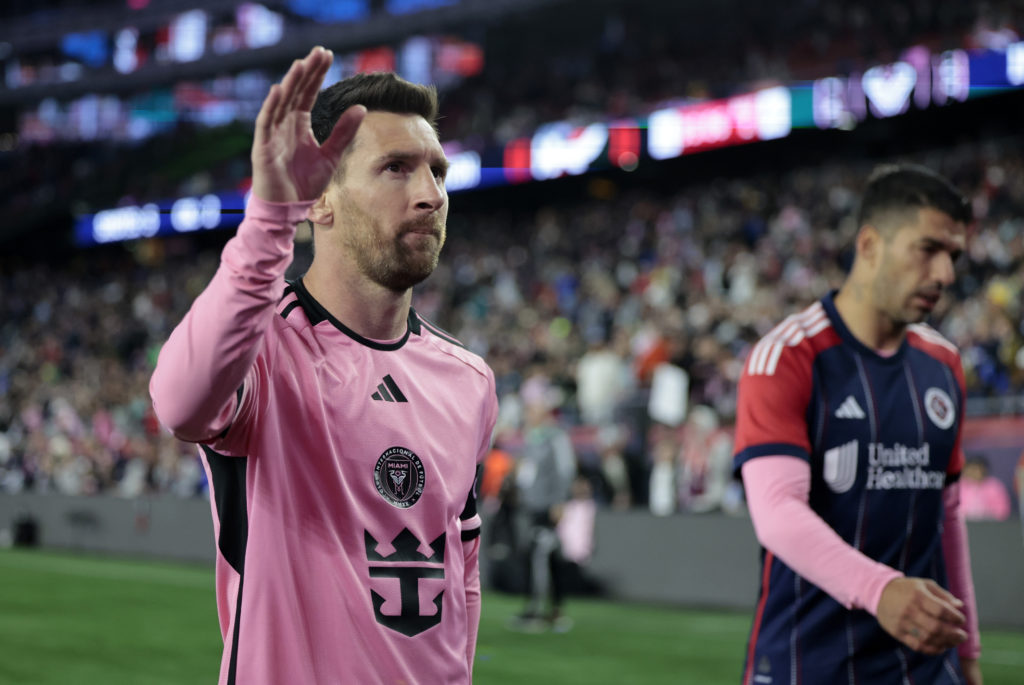
When Lionel Messi announced his decision to join Major League Soccer’s Inter Miami in the summer of 2023, it sent shockwaves throughout the football world. Widely regarded as one of the greatest players to ever play the game, Messi’s move to the U.S. league was unexpected, especially when he had lucrative offers from European powerhouses and a staggering deal from Saudi Arabia. So, why did Messi choose MLS and Inter Miami over other prestigious opportunities? Let’s break down the real reasons behind his decision.
A New Chapter in Family Life
Perhaps the most personal reason for Messi’s move to Miami was family. After spending more than 20 years in Europe—largely in Barcelona, Spain, where he raised his three sons—Messi was seeking a more relaxed lifestyle for his family, far removed from the pressures and scrutiny of European football. Miami offers an international city with Latin culture, a welcoming climate, and the chance for Messi to provide a more balanced life for his children and wife, Antonela Roccuzzo.
Living in Miami would allow Messi’s family to settle in a place where they could enjoy relative anonymity compared to Europe’s football-mad nations. Additionally, the language barrier wasn’t an issue, as Spanish is widely spoken in Miami. This family-centric decision showed that Messi wasn’t just thinking about his career, but also about giving his loved ones a quality environment to thrive in.
The Opportunity to Build Soccer in the U.S.
While MLS may not be on par with Europe’s top leagues in terms of competition, it is a growing market. Messi’s move to Inter Miami was not just about playing football; it was about pioneering and helping soccer grow in North America. His arrival is seen as a pivotal moment in the sport’s evolution in the U.S., much like when David Beckham joined the LA Galaxy in 2007. Messi’s influence on the development of the game could be even more profound, as he brings a global fanbase and elevates the league’s visibility.
The United States is co-hosting the 2026 World Cup, and Messi’s presence in the country leading up to that tournament could create a lasting legacy. His star power will undoubtedly draw attention to MLS and attract younger talent, helping the league continue its upward trajectory.
Ownership and Legacy Opportunities
Behind Messi’s decision to join Inter Miami is the allure of an ownership stake in the club, a deal not often available in traditional European transfers. Part of the package that lured Messi to the U.S. was the promise of becoming more than just a player. With an ownership stake, Messi can shape the future of the club beyond his playing years, giving him a long-term role in the sport at an executive level.
David Beckham, the co-owner of Inter Miami, played a crucial role in convincing Messi. Beckham himself transitioned from player to owner after moving to MLS, and the idea of building something long-lasting in a city like Miami likely resonated with Messi, who is nearing the twilight of his playing career.
A Break from the European Spotlight
After years of relentless competition at the highest level, Messi’s time in MLS could be viewed as a strategic move to manage his career longevity. At 36 years old, Messi had accomplished almost everything a footballer could dream of—multiple Champions League titles, La Liga triumphs, and, most importantly, the World Cup victory with Argentina in 2022.
By moving to the U.S., Messi steps away from the grueling weekly demands of European competition, where he’s constantly compared to Cristiano Ronaldo and other elite players. In MLS, Messi can focus on enjoying the game, easing the physical and mental toll on his body, while still performing at a high level. It’s a softer landing spot where he can still shine but with less pressure.
Lucrative Commercial Ties and Brand Expansion
While Messi turned down a monumental financial offer from Saudi Arabia, the deal with MLS and Inter Miami offers its own lucrative benefits, particularly through commercial partnerships. A key part of Messi’s decision was his deal with Apple and Adidas, both major sponsors of MLS. Apple, through its partnership with MLS for exclusive streaming rights, is believed to have structured a deal where Messi benefits from the league’s streaming success, allowing him to profit from the growth of the MLS Season Pass on Apple TV.
Moreover, Messi’s longstanding partnership with Adidas—an official sponsor of MLS—adds another layer to the financial incentives. By moving to the U.S., Messi’s brand continues to expand in one of the most influential markets in the world, giving him the potential to grow his profile off the field, something that European football or Saudi Arabia couldn’t offer in the same way.
Lionel Messi’s move to Inter Miami and MLS was about more than just football. It was a strategic decision shaped by personal, professional, and financial factors. Messi sought a fresh start for his family, a chance to help grow soccer in the U.S., and an opportunity to secure his post-playing career with ownership stakes and commercial deals. Ultimately, the real reason Messi joined Inter Miami was a confluence of personal fulfillment, legacy-building, and smart business—cementing his status not only as one of football’s greatest players but also as a global icon shaping the future of the sport.







